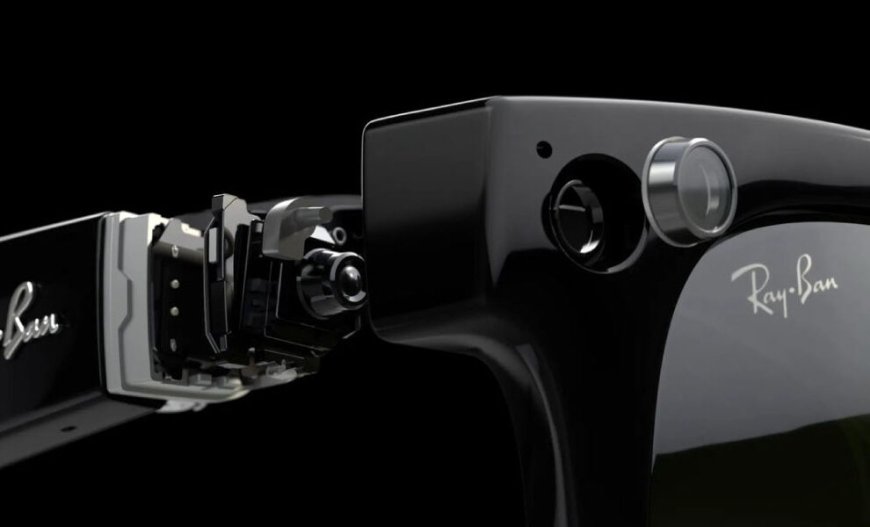Meta’s Smart Glasses Spark Privacy Debate in U.S. Cities
Meta’s smart glasses are raising privacy concerns in U.S. urban environments, with beta testers and legal experts weighing in on real-world applications and regulatory challenges.

Introduction: Smart Glasses Meet Real-World Privacy Challenges
Meta’s latest smart glasses have entered U.S. urban streets through limited beta testing programs, promising to integrate augmented reality (AR), social media connectivity, and AI-assisted information overlays into daily life. While the technology has generated excitement for its potential applications, it also raises significant privacy and regulatory concerns.
Users, privacy advocates, and legal experts are closely examining the implications of wearing connected cameras and sensors in public spaces, where consent and data collection intersect with everyday activities.
Beta Tester Experiences: Daily Life and Data Concerns
Participants in Meta’s beta testing programs have reported both utility and unease. Features like real-time navigation, contact recognition, and contextual notifications enhance convenience, but they also generate continuous data streams about user movements and surroundings.
Jane Liu, a beta participant in New York City, shared:
“The glasses are impressive for navigation and AR experiences, but I worry about capturing images of strangers without consent. It’s constantly on, and that feels intrusive.”
Beta testers report that while Meta includes privacy features such as visible recording indicators and limited data storage, the technology still records environmental data that could be sensitive, including faces, vehicle license plates, and private conversations.
Legal Expert Perspectives
Legal scholars emphasize that U.S. privacy laws currently lag behind the rapid deployment of wearable AR technologies. Professor Michael Greenberg, an expert in technology law at Georgetown University, noted:
“Smart glasses operate in a gray area. Public recording isn’t illegal in many states, but capturing identifiable information and storing it without consent could violate privacy statutes.”
Other concerns focus on potential misuse, such as profiling individuals, unauthorized surveillance, or data breaches. Lawyers suggest that regulations may need updating to address the unique challenges of wearable, always-connected devices in public spaces.
Regulatory Landscape and Urban Implications
U.S. cities are experimenting with local regulations for connected devices, though standards remain inconsistent. Key considerations include:
-
Data Protection: Ensuring user data is encrypted and not stored longer than necessary.
-
Consent Mechanisms: Implementing clear indicators when recording or analyzing bystanders.
-
Commercial Use Limitations: Restricting the use of collected data for advertising without explicit permission.
Some municipalities are considering ordinances requiring visual cues, such as a small light that activates when the device is recording. While voluntary compliance is encouraged, enforcement remains a challenge.
Real-World Applications and Public Perception
Despite privacy concerns, users are finding practical applications in urban settings:
-
Navigation and Transit: Augmented overlays show directions, bus schedules, and pedestrian alerts.
-
Emergency Assistance: Smart glasses can guide users through emergencies with real-time instructions.
-
Accessibility: Features aid visually impaired users by labeling objects or providing audio cues.
However, public perception is mixed. Surveys indicate that over 45% of urban residents express discomfort with the devices being used around them, while 35% are curious but cautious.
Ethical Considerations and Corporate Responsibility
Privacy advocates urge Meta and other tech companies to adopt ethical design principles, such as:
-
Limiting environmental data retention.
-
Providing transparency on what data is processed and how it is used.
-
Allowing bystanders to opt out or mask their presence in AR recordings.
Meta has stated that user education and community feedback will inform the rollout, emphasizing voluntary compliance and built-in safeguards.
Conclusion
Meta’s smart glasses are at the intersection of innovation and privacy concern. While they offer powerful real-world applications, from navigation to accessibility, they also highlight gaps in current U.S. regulations for wearable AR technology.
The next phase of adoption will depend on ethical deployment, legal clarity, and public acceptance, balancing technological advancement with respect for individual privacy. Urban users, policymakers, and tech companies must collaboratively address these challenges to ensure that smart glasses enhance daily life without compromising civil liberties.














